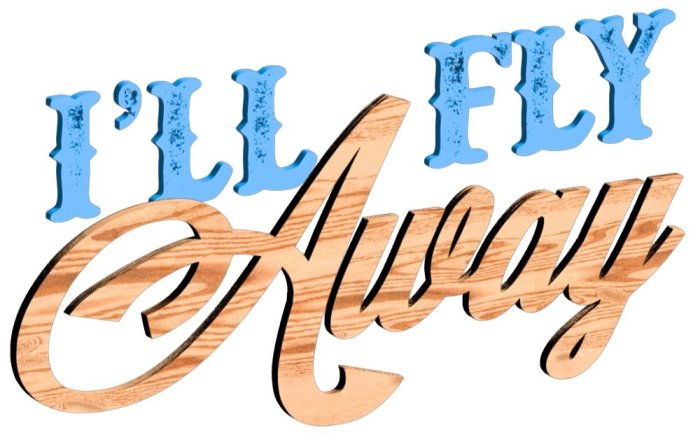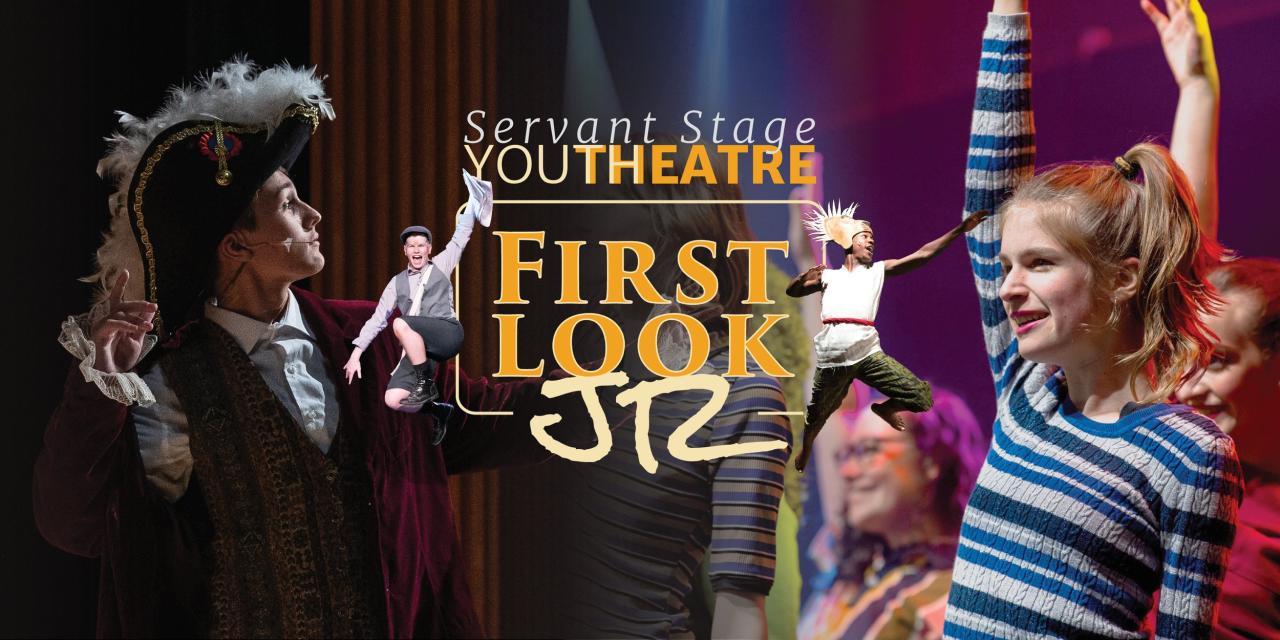Servant Stage I’ll Fly Away, a timeless spiritual, sets the stage for an enthralling exploration of its historical context, lyrical depth, musical structure, cultural impact, and comparisons with other spirituals. From its origins in American gospel music to its enduring popularity, this song captivates with its themes of longing, hope, and transcendence, offering a glimpse into the richness and power of spiritual expression.
Delving into the lyrics of Servant Stage I’ll Fly Away reveals a tapestry of metaphors and imagery, weaving a narrative of yearning for a higher realm and the anticipation of a transformative journey. The song’s musical structure, with its emotive tempo, poignant key, and evocative instrumentation, complements the lyrics, amplifying the emotions and messages conveyed.
Historical Context

The song “Servant Stage I’ll Fly Away” has a rich history, originating from the African American spiritual tradition.
It is believed to have been first performed by the Wings Over Jordan choir in the 1920s, and quickly became a staple of gospel music. The song’s lyrics, which express the longing for heaven and the hope of eternal life, resonated with audiences during a time of social and economic hardship.
Significance
Over the years, “Servant Stage I’ll Fly Away” has been covered by numerous artists, including Mahalia Jackson, Aretha Franklin, and Elvis Presley. It has also been featured in films and television shows, further solidifying its place in American popular culture.
The song’s enduring popularity is a testament to its powerful message of hope and resilience, which continues to inspire people around the world.
Lyrical Analysis

The lyrics of “Servant Stage I’ll Fly Away” employ vivid metaphors and imagery to convey the themes of longing, hope, and transcendence.
Use of Metaphors
The song is replete with metaphors that evoke the journey towards spiritual liberation. The “servant stage” represents the earthly realm, where individuals toil and endure hardships. The “golden slippers” symbolize the wings of freedom and enlightenment, while the “river of Jordan” signifies the boundary between the physical and spiritual worlds.
Imagery and Symbolism
The song also employs powerful imagery and symbolism to depict the transformative power of faith. The “tree of life” represents the sustenance and nourishment provided by God, while the “chain gang” symbolizes the burdens and constraints of the physical world.
The moving strains of “Servant Stage I’ll Fly Away” echo in our hearts, a testament to the transformative power of selfless service. Just as Auggie Pullman in summary of auggie and me taught us about empathy and acceptance, “Servant Stage I’ll Fly Away” reminds us of the profound impact we can make by lifting others up.
Through acts of kindness, we soar above our limitations, embodying the spirit of this timeless hymn.
Themes of Longing, Hope, and Transcendence
Throughout the song, the lyrics express a longing for spiritual liberation and a hope for a better existence beyond the confines of the physical world. The chorus, “I’ll fly away, oh glory, I’ll fly away,” captures this yearning for transcendence.
Musical Structure
The musical structure of “Servant Stage I’ll Fly Away” is simple and repetitive, reflecting the song’s spiritual and devotional nature.
The song is written in the key of G major and follows a basic 12-bar blues progression. The tempo is moderate, allowing the lyrics to be clearly heard and understood.
Instrumentation, Servant stage i’ll fly away
The instrumentation is sparse, consisting primarily of acoustic guitar, bass, and drums. The guitar provides the main melodic and rhythmic accompaniment, while the bass and drums provide a solid foundation. The song also features occasional backing vocals, which add to the overall atmosphere and sense of community.
Contribution to Mood and Message
The musical structure of “Servant Stage I’ll Fly Away” contributes to the song’s overall mood and message of hope and longing.
- The simple, repetitive structure creates a sense of familiarity and comfort, reflecting the song’s message of spiritual comfort and guidance.
- The moderate tempo allows the lyrics to be clearly heard and understood, emphasizing the song’s message of faith and redemption.
- The sparse instrumentation provides a sense of intimacy and reflection, allowing the listener to focus on the song’s lyrics and message.
Cultural Impact

The enduring popularity of “Servant Stage I’ll Fly Away” has cemented its place as a beloved American folk song. Its poignant lyrics and timeless message have resonated with generations of listeners, inspiring its use in a variety of cultural contexts.
In Popular Culture
The song has been featured prominently in numerous films, television shows, and literature. In the 1994 film Forrest Gump, the song is used as a poignant backdrop to the character’s childhood and journey through life. It also appears in the television series The Walking Dead, where it is sung by the characters as a symbol of hope and resilience.
The song’s lyrics have been quoted in works of literature, including Maya Angelou’s autobiography I Know Why the Caged Bird Sings. Its themes of perseverance and the promise of a better future have made it a source of inspiration for writers and artists alike.
Comparison with Other Spirituals

Servant Stage I’ll Fly Awayshares several commonalities with other spirituals. Like many spirituals, it explores themes of hope, redemption, and the promise of a better life beyond earthly suffering. Its lyrics also reflect the resilience and faith of African Americans in the face of adversity.
Musical Style
Musically, Servant Stage I’ll Fly Awayis similar to other spirituals in its use of simple melodies, call-and-response vocals, and a strong rhythmic foundation. However, it also incorporates elements of traditional folk music, such as the use of a banjo and fiddle.
Cultural Significance
Like many spirituals, Servant Stage I’ll Fly Awayhas played an important role in African American culture. It has been sung by generations of African Americans, both in religious and secular settings, and has become a symbol of hope and perseverance.
Essential FAQs: Servant Stage I’ll Fly Away
What is the historical context of Servant Stage I’ll Fly Away?
The song emerged from the African American spiritual tradition during the 19th century, expressing the longing for freedom and transcendence amidst adversity.
What are the key themes explored in the lyrics of Servant Stage I’ll Fly Away?
The lyrics convey themes of longing for a better life, hope for redemption, and the anticipation of a transformative journey.
How does the musical structure of Servant Stage I’ll Fly Away contribute to its emotional impact?
The slow tempo, minor key, and use of call-and-response create a sense of longing and anticipation, amplifying the song’s emotional resonance.
In what ways has Servant Stage I’ll Fly Away influenced popular culture?
The song has been featured in numerous films, television shows, and literary works, showcasing its enduring appeal and cultural significance.